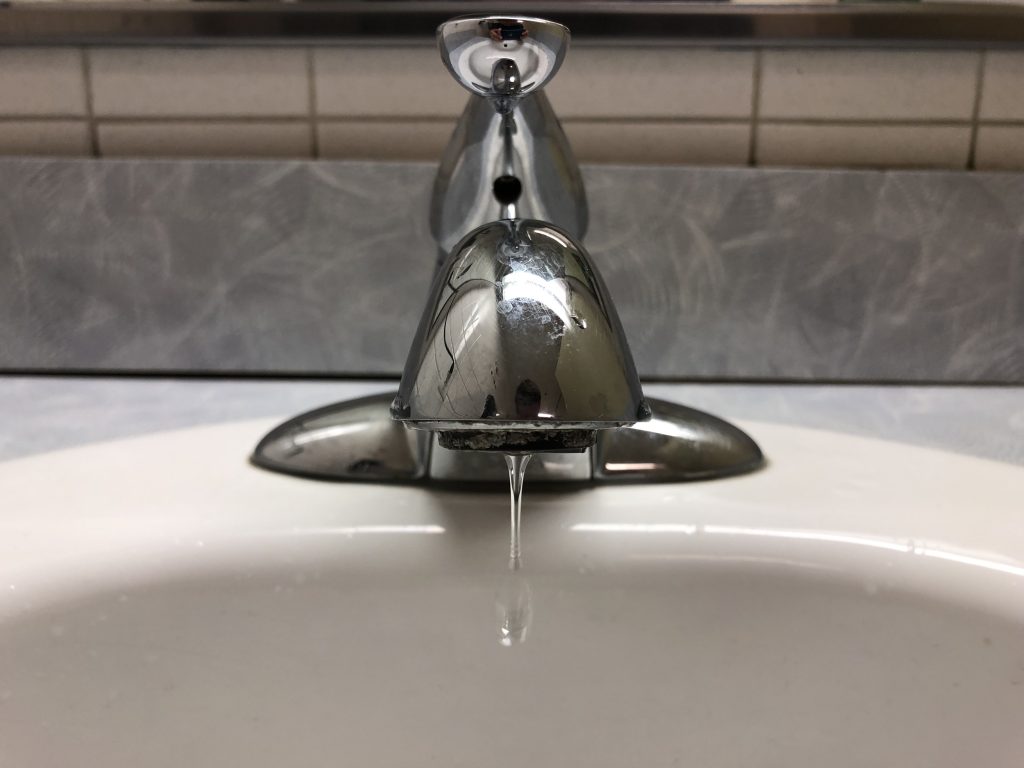Water Activists Skeptical of Duggan’s Commitment to End Water Shutoff Policy
Mayor Mike Duggan says he wants to end the practice of shutting off water to low-income Detroiters once and for all, a move which comes after years of hard-fought efforts by water activists and residents to call attention to the public health crisis.

In 2014, the United Nations called Detroit’s water shutoffs policy “contrary to human rights.” Now, six years later, Mayor Mike Duggan says he wants to end the practice of shutting off water to low-income Detroiters once and for all.
At the beginning of the coronavirus pandemic, the city put a moratorium and city officials announced a plan yesterday to extend that moratorium through 2022, with a complete end to the austerity measure to follow. It’s a huge change in direction for the city which has resisted calls to end the policy.
“We’ve seen the mayor do these kinds of big announcements that seem to be more of a political ploy or a media ploy.” — Monica Lewis-Patrick, We the People of Detroit
The move comes after years of hard-fought efforts by water activists and residents to call attention to the public health crisis they said the shutoff policy represented.
Listen: Activists react to Mayor Duggan’s water shutoff announcement.
Guests:
Monica Lewis-Patrick is the President & CEO of We The People of Detroit, an advocacy group that focuses on issues of poverty, including access to clean and affordable water. She says that while she’s cautiously optimistic about the Mayor’s announcement to end water shutoffs, the proof will be in the pudding.
“We’ve seen the mayor do these kinds of big announcements that seem to be more of a political ploy or a media ploy,” says Lewis-Patrick.
The two-year timeline laid out by Mayor Duggan to adopt a permanent water access plan was also of concern for activists.
“If Detroit is truly committed to a water affordability plan, it won’t take two years,” says Lewis-Patrick.
DeMeeko Williams is the Chief Director of Hydrate Detroit, a non-profit water rights organization that helps people with emergency water, consultation, advocacy, and restoration of water services. Williams says the Mayor’s statement was nothing more than political posturing for his re-election campaign, noting the absence of key water activists from the city’s big announcement. He adds that for years city and state governments refused to acknowledge the shutoff policy as a risk to public health, even when pushed by activists to do so.
Williams said he would be willing to work with the city on reform moving forward and encouraged the inclusion of activists in the creation of policy.
“Let’s meet and have a big water summit and let’s talk about the ways we can get this done,” he says. “I won’t stop until we get water debt amnesty.”
Detroit Today student producer Clare Brennan wrote this post
Trusted, accurate, up-to-date
WDET is here to keep you informed on essential information, news and resources related to COVID-19.
This is a stressful, insecure time for many. So it’s more important than ever for you, our listeners and readers, who are able to donate to keep supporting WDET’s mission. Please make a gift today.
